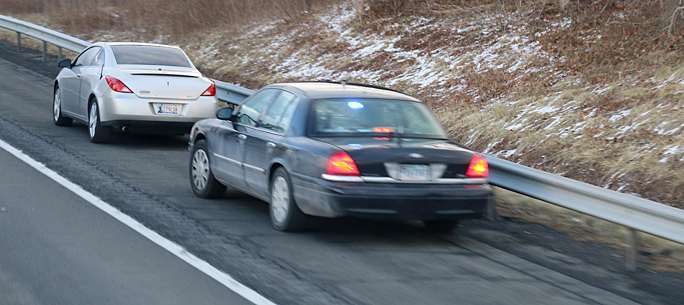With the exception of public safety reasons, members of local and state law enforcement agencies are now barred by Eric Holder — the attorney general of the United States — from using federal law to seize cash, cars and other property without warrants or criminal charges.
While the extent of civil asset forfeiture extended to houses — where the items were actually named in lawsuits as defendants against the federal government of the United States — it was the travel part which interested me.
Imagine traveling hundreds of miles in the United States with a large sum of money — only to be stopped by a police officer who can simply take your money under the suspicion that it is in connection with illegal activities such as drug dealing and weapons trafficking…
…and the police officer needs no proof to seize the cash. He or she is betting that you are not willing to spend the time or money to fight the charges — if any — and attempt to have the money returned to you simply because it would not be worth it.
Despite the civil asset forfeiture program having become “a part of the fight against drugs in the United States since 1970 when Congress allowed police were allowed to seize aircraft, boats and other property used to transport narcotics or bought by drug lords with ill-gotten gains”, it has since been expanded to include other property to be seized — and has allegedly been abused by some law enforcement agencies as a source of income.
“Since 2008, thousands of local and state police agencies have made more than 55,000 seizures of cash and property worth $3 billion under a civil asset forfeiture program at the Justice Department called Equitable Sharing”, according to this article written by Robert O’Harrow Jr., Sari Horwitz and Steven Rich of The Washington Post, which conducted an in-depth investigation — including innocent people who had their money taken away from them by law enforcement officers.
While not nearly as lucrative as ancillary fees and fuel surcharges, you read that correctly: three billion dollars within seven years.
Your property is guilty until you prove it innocent, according to this video produced by The Washington Post…
…and this video aired recently on Last Week Tonight With John Oliver:
There are many reports posted on FlyerTalk pertaining to corrupt police officers in countries such as Peru, South Africa, Morocco, Thailand, Mexico, Indonesia, Ukraine, Costa Rica, Georgia, Guatemala, and the Philippines. Should the United States have been included on this list?
I have always been of the mind that — while the law enforcement community has had its share of “bad apples”, so to speak — police officers are generally honest and hard-working individuals whom you can trust. Still, I am glad that Eric Holder decided to revoke the permission of law enforcement officers to use federal law to freely seize assets on a whim without warrants or criminal charges. Although I can understand the seizures in legitimate circumstances, the law became too broad — which reportedly invited inevitable corruption. It is a shame that some law enforcement agencies would knowingly and proactively take advantage of the very people they are supposed to protect.
As a traveler, I had never had money blatantly confiscated by a law enforcement officer without provocation or probable cause — but then again, I rarely have a reason to carry around large amounts of cash with me. Have you ever experienced civil asset forfeiture — or something similar — in your travels?
The photograph at the top was used for illustrative purposes only and is not meant to imply that police in the photograph engaged in civil asset forfeiture at the time that the photograph was taken. Photograph ©2015 by Brian Cohen.
